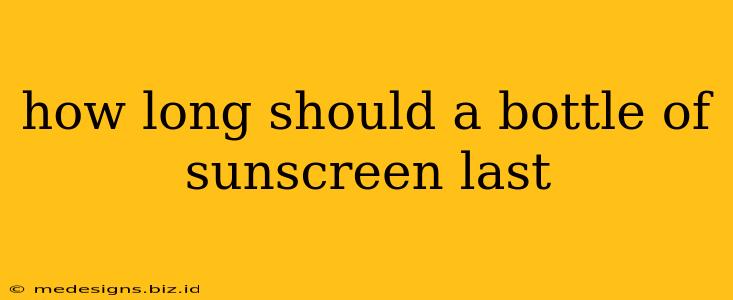Summer's here, and that means sun protection is top of mind! But how long does that bottle of sunscreen you just bought actually last? It's a question many of us ponder, especially considering the investment in quality sun protection. Let's dive into the details and uncover the secrets to maximizing the lifespan of your sunscreen.
Understanding Sunscreen Expiration Dates
First things first: ignore the printed expiration date on many sunscreen bottles. While the manufacturer's date provides a guideline, it doesn't account for individual usage and storage conditions. Sunscreen's effectiveness degrades over time, and several factors can accelerate this process.
Factors Affecting Sunscreen Lifespan:
-
Exposure to Heat and Light: Leaving your sunscreen in a hot car or direct sunlight significantly reduces its potency. Store it in a cool, dark place, ideally below 77°F (25°C).
-
Exposure to Air: Once opened, the sunscreen is exposed to oxygen, which can accelerate its breakdown. Make sure to tightly close the cap after each use.
-
Contamination: Applying sunscreen with dirty fingers or dipping your fingers repeatedly into the bottle introduces bacteria and contaminants, potentially compromising its effectiveness. Consider using a pump dispenser for hygienic application.
-
Type of Sunscreen: Chemical sunscreens generally have a shorter shelf life than mineral sunscreens (zinc oxide and titanium dioxide).
-
Product Formulation: Some formulations are more stable than others. Check the ingredient list for preservatives that can extend shelf life.
How to Determine When Your Sunscreen Has Gone Bad:
Even if your sunscreen isn't past the printed expiration date, it's vital to check for signs of degradation:
-
Changes in Texture and Consistency: Has your sunscreen separated, become grainy, or changed color significantly? These are strong indicators of degradation.
-
Unusual Odor: A rancid or off-putting smell is a clear sign that your sunscreen has gone bad.
-
Loss of Effectiveness: If you notice increased sunburn despite regular application, it's time to replace your sunscreen.
The Rule of Thumb: Replacing Your Sunscreen Regularly
While there's no universally agreed-upon timeframe, a good rule of thumb is to replace your sunscreen every year or sooner if you notice any signs of degradation as mentioned above. For smaller bottles, especially those frequently used during peak summer months, you might even need to replace them sooner than a year.
Maximizing Your Sunscreen's Lifespan:
- Buy Smaller Bottles: This prevents waste from unused sunscreen that expires.
- Use a Pump Dispenser: This helps maintain hygiene and prevent contamination.
- Store Properly: Keep it in a cool, dark place.
- Monitor for Changes: Regularly check for changes in texture, smell, or effectiveness.
Conclusion:
Don't gamble with your skin's health. While saving money on sunscreen is tempting, ensuring you're using effective protection against harmful UV rays is paramount. By following these tips and regularly checking your sunscreen, you can keep your skin safe and make the most of your sun protection investment. Remember, consistent application and replacement are key to effective sun protection!
